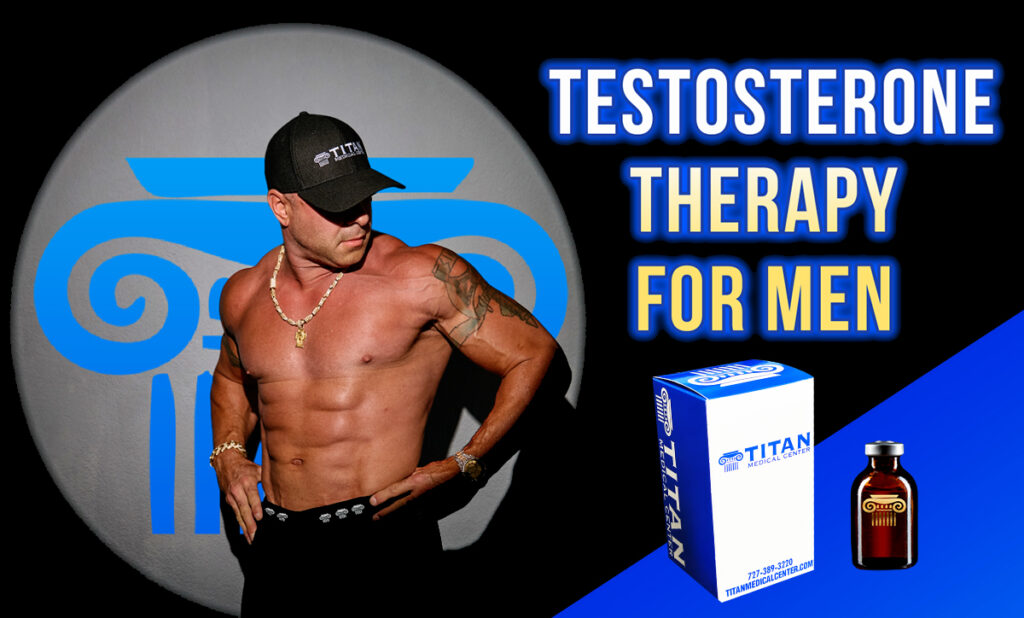
feel, look, and perform
at your very best
Testosterone
Testosterone is the major sex hormone, produced largely in the testes of men and is responsible for developing the primary and secondary sexual characteristics in males. Development of male sex organs, lean body mass (your muscles) and facial hair all are the result of testosterone production. In addition to the development of the male sex organs, testosterone is also responsible for controlling sexual drive and sexual function, sperm production and fat metabolism.
What happens when the body starts producing less testosterone?
As men reach their mid 20s, just as with the other major hormones the male body produces, the body begins to slow down production of testosterone. This is why, very often, men as young as 30 experience significant symptoms as a result of testosterone depletion. Some of the symptoms associated with testosterone depletion are decreased libido (your sex drive), inability to produce or maintain steady erections, decreased muscle mass, increased levels of body fat, depression, poor concentration, mental cloudiness and suboptimal cholesterol profile.
Hypogonadism
Male hypogonadism is a condition in which the body doesn’t produce enough of the hormone testosterone — the hormone that plays a key role in masculine growth and development during puberty.
Andropause
Andropause is the male version of menopause; however, it occurs more gradually, over a longer period of time than its counterpart. During andropause, men experience a gradual decline in testicular function and testosterone production. Many physiological and psychological changes occur during this time.
Between their mid-40s and early 70s, men experience a drop in testosterone of about 50%; however, it is often noted as young as 30. Men with reduced testosterone production have an increase in upper and central body fat, decreased muscle mass, diminished libido and erectile dysfunction. Cognitive impairment and depression are also common in men that have low testosterone.
Here are some things that could be happening to you!
Feeling tired, fatigued, or weak?
Feeling or looking older than you are?
Having a hard time trying to stay focused?
Having a hard time getting or staying in shape?
Having sex drive problems or just not interested?
Decreased mental sharpness
Decreased energy and strength
Decreased muscle and increased fat
Heart disease and Arteriosclerosis
Osteoporosis
Decreased erectile function
Depression and/or loss of eagerness and enthusiasm
Irritability (20-25% of men – heard of “grumpy old men”)
Increased risk of prostate cancer (low testosterone levels increase risk)
Disturbed sleep patterns
Water retention
Fat deposits
Benefits of Testosterone therapy
• Can help lower cholesterol
• Increase in Lean Muscle Mass
• Improves Your Quality of Life
• Can help lower anxiety and depression
• Can help to protect against heart disease
• May increase energy and improves stamina
• May enhance sex drive & improves sexual performance
• Can increase energy, stamina and endurance
• May improve mental functioning and ability to focus
• Improved mood and feeling of well-being
ADAM QUESTIONNAIRE
The ADAM (androgen deficiency in aging male) Questionnaire was developed in 2006 by the Society of Urologic Nurses and Associates to assist in the diagnosis of low testosterone.
1. Do you have a decrease in sex drive?
2. Do you have a lack of energy?
3. Do you have a decrease in strength and/or endurance?
4. Have you lost weight?
5. Have you noticed a decreased enjoyment of life?
6. Are you sad and/or grumpy?
7. Are your erections less strong?
8. Has it been more difficult to maintain your erection throughout intercourse?
9. Are you falling asleep after dinner?
10. Has your work performance deteriorated recently?
A diagnosis of low testosterone is suspected if these are “yes” answers to questions 1-10. However, the diagnosis of low testosterone is determined by the measurement of testosterone in the body – a simple blood test. In healthy men, total testosterone levels between 300mg/dl and 1000mg/dl are considered “normal”. When total testosterone is below 300mg/dl a man is considered to be deficient in testosterone or have Low T.
